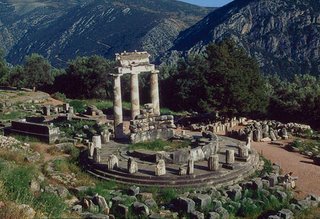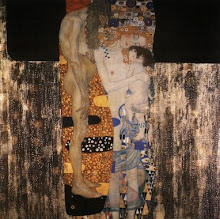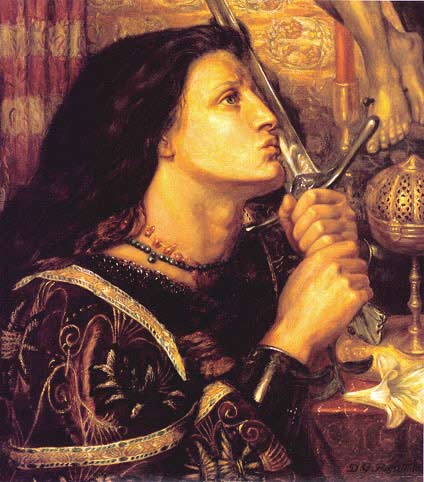
Common Declaration by Pope Benedict XVI and Patriarch Bartholomew I
“This is the day that the Lord has made, let us rejoice and be glad in it!”
(Ps 117:24)
This fraternal encounter which brings us together, Pope Benedict XVI of Rome and Ecumenical Patriarch Bartholomew I, is God’s work, and in a certain sense his gift. We give thanks to the Author of all that is good, who allows us once again, in prayer and in dialogue, to express the joy we feel as brothers and to renew our commitment to move towards full communion. This commitment comes from the Lord’s will and from our responsibility as Pastors in the Church of Christ. May our meeting be a sign and an encouragement to us to share the same sentiments and the same attitudes of fraternity, cooperation and communion in charity and truth. The Holy Spirit will help us to prepare the great day of the re-establishment of full unity, whenever and however God wills it. Then we shall truly be able to rejoice and be glad.
1. We have recalled with thankfulness the meetings of our venerable predecessors, blessed by the Lord, who showed the world the urgent need for unity and traced sure paths for attaining it, through dialogue, prayer and the daily life of the Church. Pope Paul VI and Patriarch Athenagoras I went as pilgrims to Jerusalem, to the very place where Jesus Christ died and rose again for the salvation of the world, and they also met again, here in the Phanar and in Rome. They left us a common declaration which retains all its value; it emphasizes that true dialogue in charity must sustain and inspire all relations between individuals and between Churches, that it “must be rooted in a total fidelity to the one Lord Jesus Christ and in mutual respect for their own traditions” (Tomos Agapis, 195). Nor have we forgotten the reciprocal visits of His Holiness Pope John Paul II and His Holiness Dimitrios I. It was during the visit of Pope John Paul II, his first ecumenical visit, that the creation of the Mixed Commission for theological dialogue between the Roman Catholic Church and the Orthodox Church was announced. This has brought together our Churches in the declared aim of re-establishing full communion.
As far as relations between the Church of Rome and the Church of Constantinople are concerned, we cannot fail to recall the solemn ecclesial act effacing the memory of the ancient anathemas which for centuries had a negative effect on our Churches. We have not yet drawn from this act all the positive consequences which can flow from it in our progress towards full unity, to which the mixed Commission is called to make an important contribution. We exhort our faithful to take an active part in this process, through prayer and through significant gestures.
2. At the time of the plenary session of the mixed Commission for theological dialogue, which was recently held in Belgrade through the generous hospitality of the Serbian Orthodox Church, we expressed our profound joy at the resumption of the theological dialogue. This had been interrupted for several years because of various difficulties, but now the Commission was able to work afresh in a spirit of friendship and cooperation. In treating the topic “Conciliarity and Authority in the Church” at local, regional and universal levels, the Commission undertook a phase of study on the ecclesiological and canonical consequences of the sacramental nature of the Church. This will permit us to address some of the principal questions that are still unresolved. We are committed to offer unceasing support, as in the past, to the work entrusted to this Commission and we accompany its members with our prayers.
3. As Pastors, we have first of all reflected on the mission to proclaim the Gospel in today’s world. This mission, “Go, make disciples of all nations” (Mt 28:19), is today more timely and necessary than ever, even in traditionally Christian countries. Moreover, we cannot ignore the increase of secularization, relativism, even nihilism, especially in the Western world. All this calls for a renewed and powerful proclamation of the Gospel, adapted to the cultures of our time. Our traditions represent for us a patrimony which must be continually shared, proposed, and interpreted anew. This is why we must strengthen our cooperation and our common witness before the world.
4. We have viewed positively the process that has led to the formation of the European Union. Those engaged in this great project shouldnot fail to take into consideration all aspects affecting the inalienable rights of the human person, especially religious freedom, a witness and guarantor of respect for all other freedoms. In every step towards unification, minorities must be protected, with their cultural traditions and the distinguishing features of their religion. In Europe, while remaining open to other religions and to their cultural contributions, we must unite our efforts to preserve Christian roots, traditions and values, to ensure respect for history, and thus to contribute to the European culture of the future and to the quality of human relations at every level. In this context, how could we not evoke the very ancient witnesses and the illustrious Christian heritage of the land in which our meeting is taking place, beginning with what the Acts of the Apostles tells us concerning the figure of Saint Paul, Apostle of the Gentiles? In this land, the Gospel message and the ancient cultural tradition met. This link, which has contributed so much to the Christian heritage that we share, remains timely and will bear more fruit in the future for evangelization and for our unity.
5. Our concern extends to those parts of today’s world where Christians live and to the difficulties they have to face, particularly poverty, wars and terrorism, but equally to various forms of exploitation of the poor, of migrants, women and children. We are called to work together to promote respect for the rights of every human being, created in the image and likeness of God, and to foster economic, social and cultural development. Our theological and ethical traditions can offer a solid basis for a united approach in preaching and action. Above all, we wish to affirm that killing innocent people in God’s name is an offence against him and against human dignity. We must all commit ourselves to the renewed service of humanity and the defence of human life, every human life.
We take profoundly to heart the cause of peace in the Middle East, where our Lord lived, suffered, died and rose again, and where a great multitude of our Christian brethren have lived for centuries. We fervently hope that peace will be re-established in that region, that respectful coexistence will be strengthened between the different peoples that live there, between the Churches and between the different religions found there. To this end, we encourage the establishment of closer relationships between Christians, and of an authentic and honest interreligious dialogue, with a view to combating every form of violence and discrimination.
6. At present, in the face of the great threats to the natural environment, we want to express our concern at the negative consequences for humanity and for the whole of creation which can result from economic and technological progress that does not know its limits. As religious leaders, we consider it one of our duties to encourage and to support all efforts made to protect God’s creation, and to bequeath to future generations a world in which they will be able to live.
7. Finally, our thoughts turn towards all of you, the faithful of our two Churches throughout the world, Bishops, priests, deacons, men and women religious, lay men and women engaged in ecclesial service, and all the baptized. In Christ we greet other Christians, assuring them of our prayers and our openness to dialogue and cooperation. In the words of the Apostle of the Gentiles, we greet all of you: “Grace to you and peace from God our Father and the Lord Jesus Christ” (2 Cor 1:2).
At the Phanar, 30 November 2006
Benedict XVI Bartholomew I











